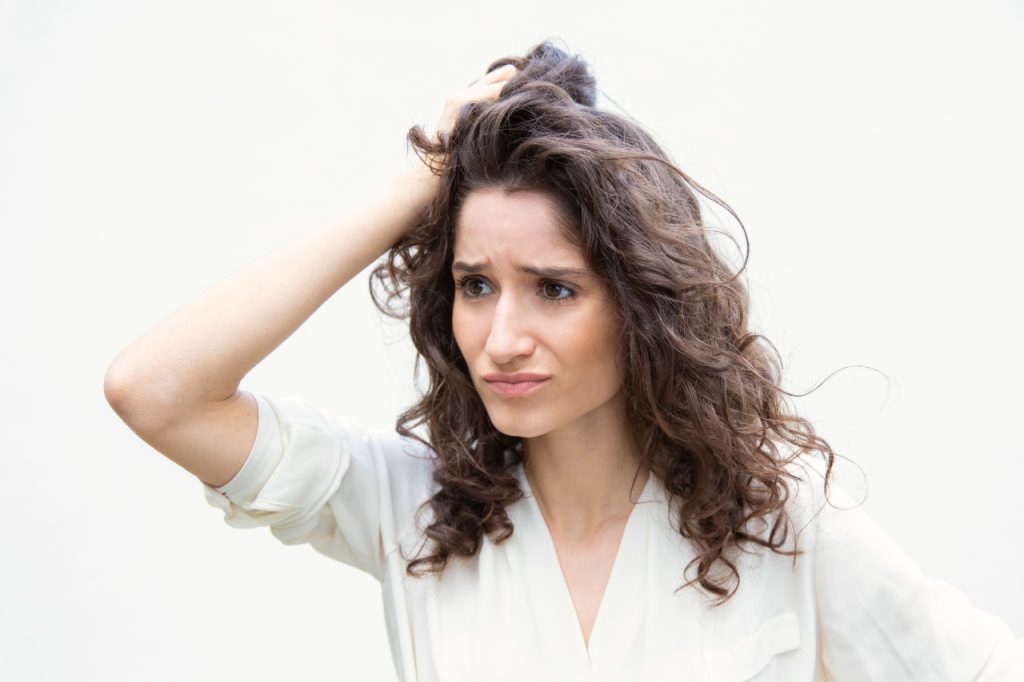Dandruff is a common scalp condition that affects people of all ages. It appears as white flakes of dead skin that shed from the scalp, often accompanied by itching and irritation. While dandruff itself is not considered dangerous, its connection to hair loss raises questions. Many people wonder whether the presence of dandruff can directly cause hair to fall out or if the two issues are unrelated. Understanding this relationship requires a deeper look into the causes of dandruff, its effects on the scalp, and how these factors interact with hair health.
Dandruff results from a variety of underlying factors. These include dry skin, oily skin, fungal infections, sensitivity to hair products, and certain skin conditions such as seborrheic dermatitis or psoriasis. The most common cause is the overgrowth of a yeast-like fungus called Malassezia, which naturally exists on the scalp. Under certain conditions, this fungus can multiply excessively, leading to inflammation, scaling, and the familiar white flakes of dandruff.
Hair loss, on the other hand, can stem from numerous causes, including genetics, hormonal changes, stress, medication, and scalp conditions. While dandruff does not directly cause hair loss, the two issues may be interconnected through a more complex process. In most cases, hair loss associated with dandruff is temporary and can be reversed with proper treatment and scalp care.
The primary link between dandruff and hair loss lies in scalp inflammation and irritation. When dandruff causes itching, scratching becomes frequent. Repeated scratching damages the hair follicles, leading to weaker strands and increased shedding. Inflammatory responses on the scalp can disrupt the natural hair growth cycle, particularly the anagen (growth) phase. This may result in a higher number of hair follicles entering the telogen (resting) phase prematurely, which in turn leads to hair fall.
Seborrheic dermatitis, a more severe form of dandruff, causes red, oily patches on the scalp covered with white or yellowish scales. This chronic condition is inflammatory in nature and can significantly impact the scalp’s ability to support healthy hair growth. The inflammation may damage the hair follicles over time, especially if left untreated. This can lead to more pronounced hair thinning or even patchy hair loss in some individuals.
Fungal infections also play a role in the relationship between dandruff and hair loss. The aforementioned Malassezia fungus feeds on the natural oils produced by the scalp. As it breaks down these oils, it produces byproducts that irritate the skin. This can cause an immune reaction, leading to increased cell turnover and flaking. If this irritation persists, the scalp environment becomes less conducive to healthy hair growth. In extreme cases, chronic fungal infections may require medical treatment to restore balance and reduce hair shedding.
Another factor to consider is the buildup of dandruff flakes on the scalp. When these flakes accumulate, they may clog hair follicles, much like how pores become clogged with sebum and debris on the skin. This buildup can block essential nutrients and oxygen from reaching the hair roots, weakening them over time. Although this process may not result in immediate baldness, it can contribute to poor hair quality and increased breakage.
Dandruff-related hair loss is often aggravated by improper hair care routines. Using harsh shampoos, over-washing, or neglecting scalp hygiene can exacerbate both dandruff and hair shedding. Some individuals may also use styling products that irritate the scalp further, triggering more flaking and scratching. In such cases, modifying the hair care regimen becomes a crucial step in controlling both issues.
To manage dandruff and reduce the risk of hair loss, several strategies can be implemented. One of the most effective treatments involves using medicated shampoos containing active ingredients like zinc pyrithione, ketoconazole, selenium sulfide, or salicylic acid. These compounds target the underlying causes of dandruff, such as fungal overgrowth and inflammation, while also promoting a healthier scalp environment.
Scalp hygiene is equally important. Regular cleansing helps remove excess oil, dead skin cells, and product buildup. However, care should be taken to avoid over-washing, which can strip the scalp of natural oils and worsen dryness. Lukewarm water should be used instead of hot water, which can irritate sensitive scalp skin. Gently massaging the scalp during washing improves blood circulation and encourages healthy hair growth.
In addition to topical treatments, lifestyle choices can impact dandruff and hair health. A balanced diet rich in vitamins and minerals supports the immune system and promotes scalp health. Nutrients such as zinc, vitamin B6, and omega-3 fatty acids are known to benefit skin and hair. Stress management is also critical, as high stress levels can contribute to both dandruff flare-ups and hair loss through hormonal changes and immune responses.
While dandruff-related hair loss is typically reversible, persistent symptoms may indicate an underlying medical condition that requires professional attention. In such cases, dermatologists can offer targeted therapies based on the severity and cause of the problem. Prescription treatments or specialized shampoos may be recommended to control chronic dandruff and restore hair growth.
It is important to note that not all hair loss associated with dandruff is caused by the condition itself. Sometimes, unrelated issues such as androgenetic alopecia (pattern baldness) may coincide with dandruff, leading to confusion about the actual cause. A proper diagnosis can help determine whether the hair loss is due to dandruff, an unrelated medical condition, or a combination of factors.
In conclusion, dandruff does not directly cause permanent hair loss, but its symptoms—especially itching, inflammation, and fungal imbalance—can indirectly lead to temporary hair shedding. Managing dandruff through proper scalp care, medicated shampoos, and lifestyle adjustments can significantly reduce the risk of hair loss and promote healthier hair. By addressing the root causes and maintaining a balanced scalp environment, individuals can prevent dandruff from becoming a barrier to strong, vibrant hair growth.

